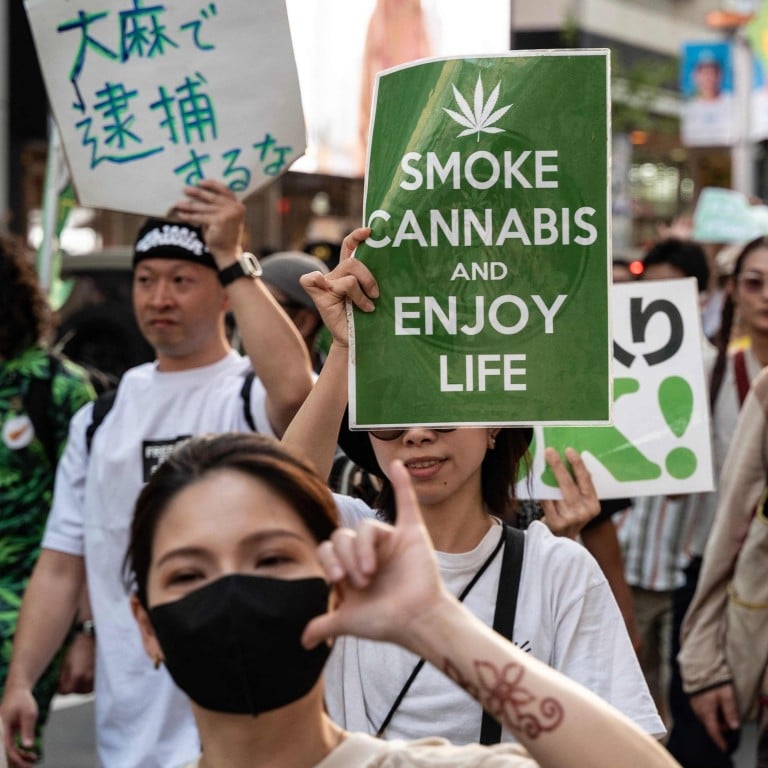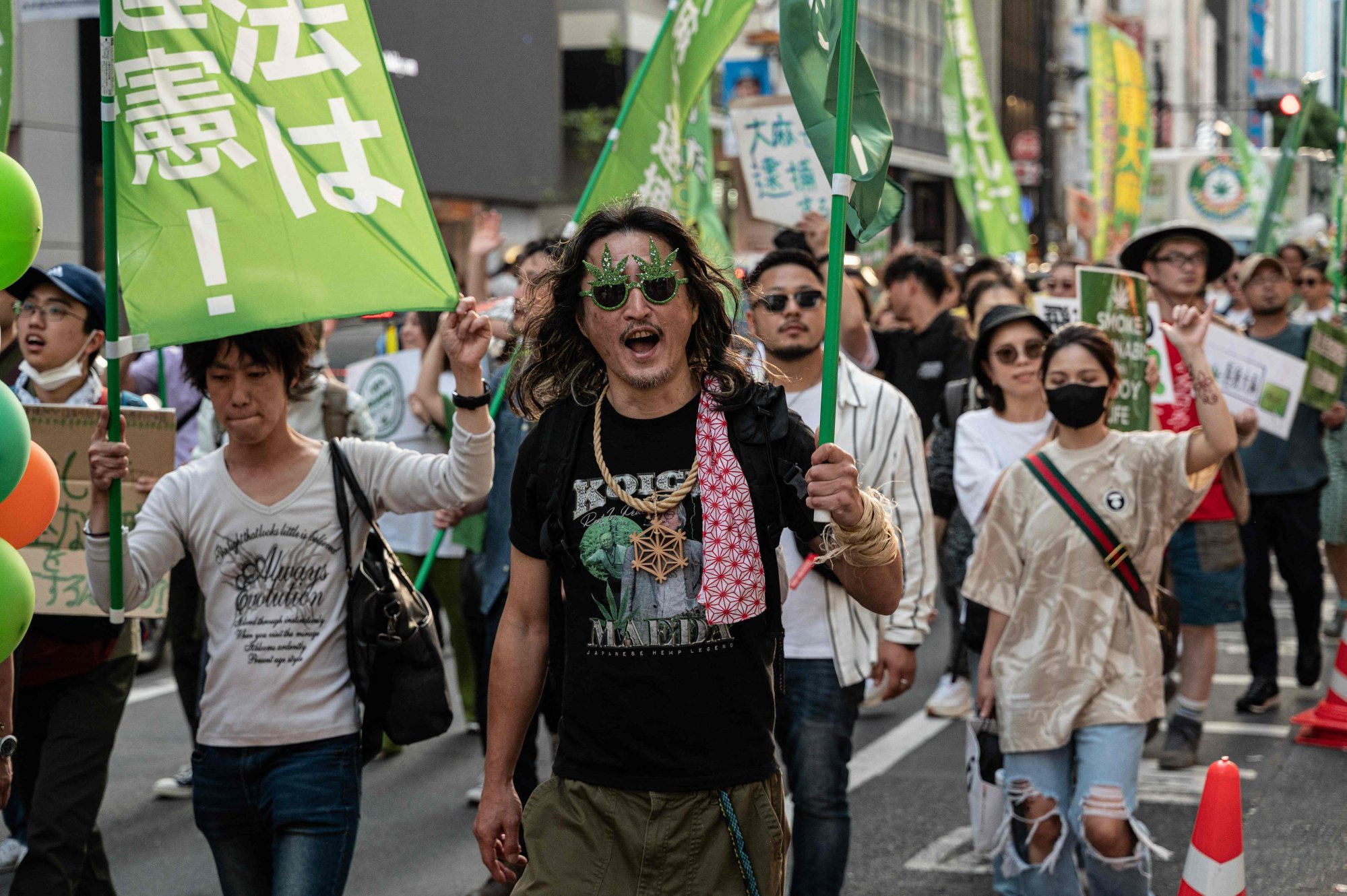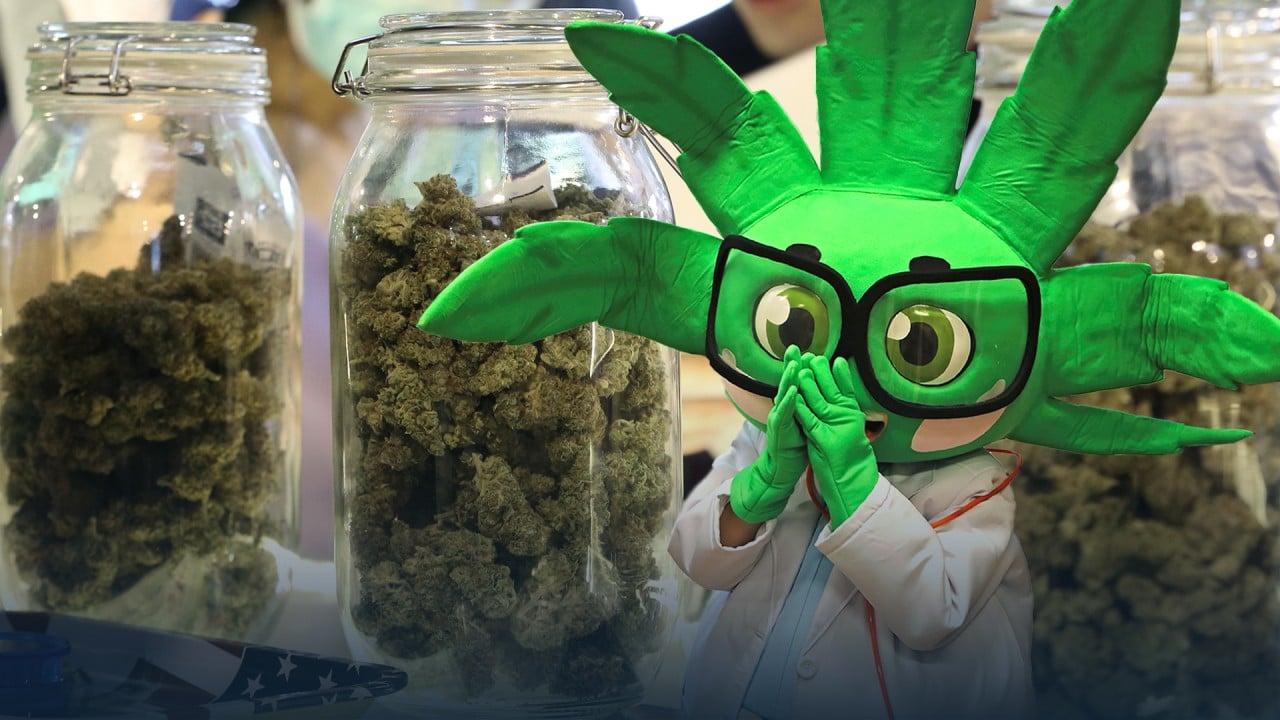
Japan to legalise medical use of cannabis, revising stringent drug laws, but toughens ban on recreational marijuana use
- The use of marijuana is heavily stigmatised in Japan, but the landmark bill is a win for patient groups that have campaigned for access to these medicines
- Japan’s anti-cannabis laws ensnared international stars including Beatle Paul McCartney, who was detained for 9 days in 1980 after the drug was found in his bag
The changes to Japan’s cannabis and narcotics control laws passed on Wednesday in the upper house will pave the way for the lifting of a ban on medical products derived from cannabis.
Under the revised laws, which enter into force within a year from promulgation, cannabis and tetrahydrocannabinol (THC), a psychoactive chemical found in the plant, are designated as narcotics to be regulated.
Cannabis-based medicines, produced with the active ingredient cannabidiol, or CBD, are already used overseas to treat various conditions such as severe epilepsy.
What you need to know about a proposed ban on CBD products in Hong Kong
This is a win for patient groups that have campaigned for access to these medicines.
However, the changes amount to a tightening of Japan’s already tough cannabis policy.
Marijuana consumption was criminalised, closing a loophole that officials partly blamed for a recent rise in cannabis-related arrests.
Before the revisions, inhaling marijuana had been technically legal, whereas possessing it was punishable by a jail term of up to five years.
The loophole was originally introduced to prevent farmers from being arrested for accidentally inhaling psychoactive smoke when growing hemp.
But alarmed by the recent spike in arrests over cannabis, especially among young people including teens, authorities decided to take things up a notch.
Under the revised laws, those caught using or possessing marijuana can face a prison sentence of up to seven years.
Health ministry statistics show the number of arrests related to cannabis hit a record 5,783 in 2021, with a marked rise among teens and those in their 20s.
And according to a 2020 police probe into 748 people arrested over marijuana possession, nearly 30 per cent cited the lack of penalties against consumption as an emboldening factor.
“As more and more young people gravitate toward abusing marijuana, we hope this revision will put a brake on the trend,” top government spokesman Hirokazu Matsuno said Wednesday after the bill cleared parliament.
Japan’s CBD market has flourished in recent years, swelling from just US$3 million in industry value in 2015 to an estimated US$59 million in 2019, according to Tokyo-based research firm Visiongraph.

The new rule against consumption will leave CBD products unregulated, as it will only target THC – the psychoactive substance that makes people high, a health ministry official said.
Japan’s Cannabis Control Act was introduced in 1948 during the post-war US occupation, but it is not an outlier in Asia where tough penalties for drug use are the norm.
Through the changes, there will be two kinds of licenses for growing cannabis, with one for those who grow it to make medicines and another for other purposes such as hemp.
The legal changes associated with cultivation will enter into force two years after announcement.
What science says about cannabis derivative CBD, seen by many as a cure-all
Still, decades of a strident government crusade against illegal drugs, synonymous with the mantra of “dame zettai” (absolutely not), have led to marijuana being heavily stigmatised in Japan.
Just 1.4 per cent of people in Japan say they have tried marijuana, compared to more than 40 per cent in France and around half in the United States, data compiled by the health ministry show.
Japan’s tough anti-cannabis laws have ensnared international stars including Beatle Paul McCartney, who spent nine days in detention in 1980 after the drug was found in his baggage.

.png?itok=arIb17P0)

